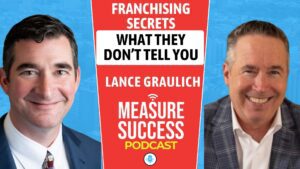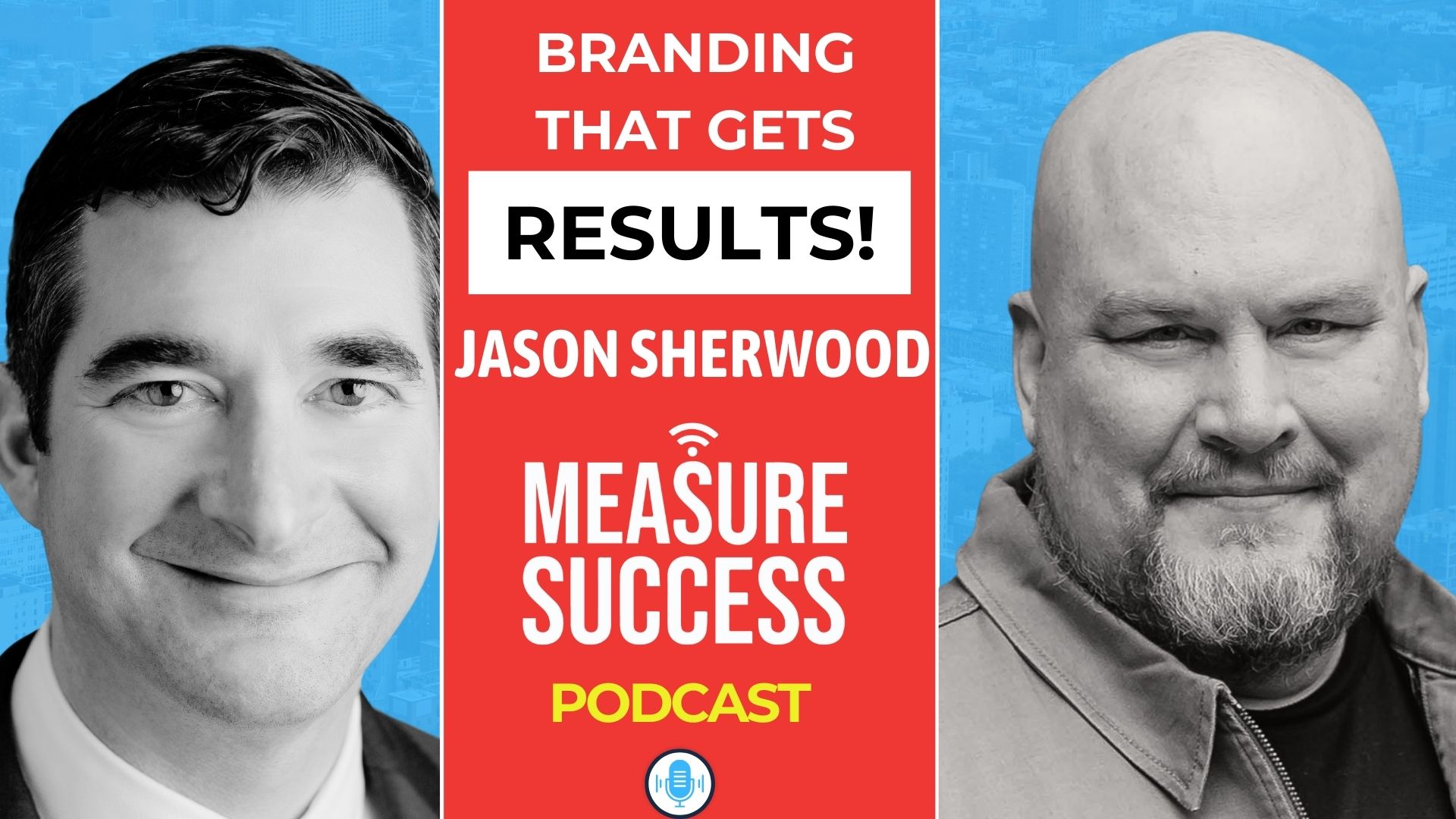
Is Franchising the Right Path to Business Ownership?
Starting a business from scratch is risky. Many entrepreneurs struggle to develop a profitable model, create brand awareness, and set up operations. That’s why franchising has become a popular path for people looking to own a business with a proven framework.
But not all franchises are created equal. Some offer comprehensive support, while others leave you to figure things out on your own. Understanding the real costs, benefits, and potential challenges of franchising is key to making the right investment decision.
In this episode of the Measure Success Podcast, we talk with Lance Graulich, a franchise industry expert who has helped entrepreneurs succeed in brands like Wingstop, Krispy Kreme, and Pink Box Donuts. He shares how to evaluate, invest in, and scale a franchise business.
What You’ll Learn in This Episode:
- How to evaluate a franchise opportunity before investing
- The biggest mistakes new franchise owners make and how to avoid them
- What it really costs to own a franchise—beyond the franchise fee
- Match your skills and risk tolerance with the right franchise
- How much profit franchise owners can expect to make
If you’ve ever considered business ownership but don’t want to start from scratch, this episode will help you decide if franchising is the right move for you.
Why Franchising? The Benefits of a Proven Business Model
Franchising offers a structured business model with the potential for faster profitability than an independent startup. Instead of spending years developing a brand, refining operations, and figuring out marketing, franchise owners benefit from a tested system and brand recognition.
Key Advantages of Franchising:
- Lower failure rate – Franchises have a proven track record, reducing the risk of failure.
- Brand recognition – Customers already trust the name, reducing marketing costs.
- Training and support – Many franchises provide extensive training and operational guidance.
- Easier access to financing – Lenders often prefer funding franchises due to lower risk.
- Built-in customer base – Franchises come with existing demand, making it easier to attract customers.
However, franchising isn’t for everyone. Some franchise agreements can be restrictive, requiring owners to follow specific guidelines, pay royalties, and adhere to strict rules. That’s why choosing the right franchise is critical.
How to Choose the Right Franchise for You
Not all franchises are the same. Some require hands-on management, while others allow for semi-absentee ownership. Understanding your goals, skills, and investment level will help you pick the right one.
Key Questions to Ask Before Buying a Franchise:
🔹 What is my role in this business? Do I want to be involved daily, or do I prefer a passive investment?
🔹 How much capital do I need? Beyond the franchise fee, what are the operating costs?
🔹 What level of training and support does the franchisor provide?
🔹 What skills do I bring to the table? Sales, operations, or industry-specific knowledge?
🔹 How long will it take to become profitable?
Lance shares how successful franchise owners take time to evaluate opportunities before committing. Rushing into a franchise without doing your homework can lead to costly mistakes.
Common Franchise Mistakes (And How to Avoid Them)
Many people assume that buying a franchise means guaranteed success. But like any business, it requires hard work, planning, and financial management.
The Most Common Mistakes New Franchise Owners Make:
- Choosing a franchise without proper research – Just because a franchise is well-known doesn’t mean it’s right for you.
- Underestimating the costs – Beyond the initial investment, there are royalty fees, marketing fees, and operational expenses.
- Lack of a clear business plan – Some owners assume the franchise will “run itself”—but leadership and strategy still matter.
- Not understanding the franchise agreement – Some contracts have restrictions on growth, pricing, and resale.
- Ignoring location and market demand – A great franchise in one city might not perform well in another.
Lance explains how proper due diligence can prevent costly missteps. He also shares real-world examples of franchise owners who have made these mistakes—and how they recovered.
How Much Money Can You Make with a Franchise?
Profitability in franchising varies widely based on the business model, location, and operational efficiency. While some franchises generate millions, others barely break even.
Understanding Franchise Profits:
- Franchise owners can expect to net 15-25% of revenue (depending on industry and management).
- High-performing franchises in service industries (like home care or B2B services) can reach 30%+ net margins.
- Retail and food franchises tend to have higher revenue but lower profit margins due to higher overhead costs.
- Semi-absentee franchises often bring in lower margins but require less time and involvement.
Lance advises potential franchise owners to focus on cash flow and long-term value, rather than just the top-line revenue. A business making $1M with 10% net profit can be more valuable than one making $3M with 3% net profit.
Final Thoughts: Is Franchising Right for You?
Franchising isn’t for everyone. But for those who want business ownership with a structured model, it can be a highly profitable investment.
Key Takeaways from This Episode:
- Do your research before investing in a franchise
- Align your skills, budget, and risk tolerance with the right model
- Understand the costs, contracts, and long-term growth potential
- Focus on building a team and following proven system
Connect with Lance:
Connect with Carl:
- 40 Strategy
- 40 Accounting
- Contact 40 Strategy
- Carl J. Cox on LinkedIn
- Buy a copy of “Lost at CEO: An Entrepreneur’s Guide to Strategy” by Carl J. Cox.
Interested in being a guest? Apply here.
Listener Feedback:













